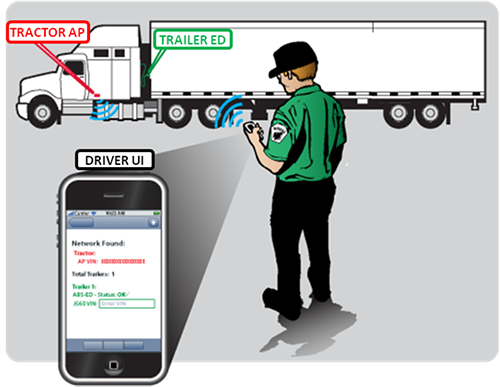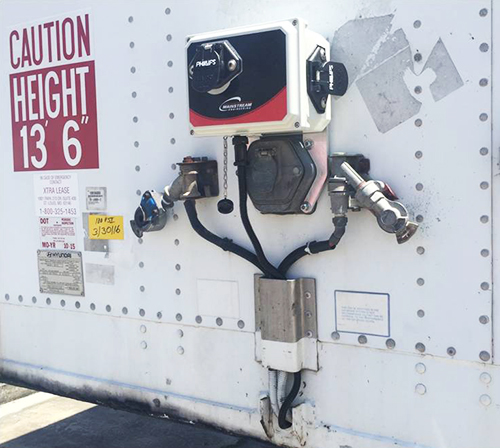An App for Monitoring Tractor-Trailers’ Fuel Usage
In 2014, there were more than eight million registered single-unit trucks in the United States, and two and a half million of those were combination trucks (tractor-trailers), according to the Federal Motor Carrier Safety Administration (FMCSA). These trucks resulted in 279.1 billion miles traveled throughout the year, so it’s crucial that large trucks are mindful of their fuel efficiency.
Complications such as vehicle maintenance issues or poor driving habits can prevent drivers from achieving optimal fuel efficiency, leading to waste and additional costs.
To address these challenges, Mainstream Engineering Corporation developed a free vehicle-monitoring smartphone application called Ottobon that performs trip diagnostics that could lead to major money-saving alterations for drivers and motor carriers.
Ottobon compares a driver’s actual and expected fuel economies, and identifies and informs a driver of any vehicle maintenance issues, such as an out-of-tune engine, excessive cargo weight, or driving habits that may be contributing to subpar fuel efficiency. The app also suggests possible vehicular changes or tips for improving driving and saving fuel. The app uses a patent-pending physics-based vehicle model that runs in real time to provide this targeted feedback to the driver.

Featured are the three Ottobon subsystems that make up the monitoring system, including the phone app, tractor receiver, and trailer transmitter.
“What excites us the most [about the app] are the economic benefits,” said Dr. Robert Scaringe, president and founder of Mainstream Engineering Corporation. “A driver can save a lot of money by driving smartly.”
Users download the free app onto their smartphones or tablets, and optionally plug a Bluetooth on-board diagnostic (OBD) adapter into the vehicle’s diagnostic port. For users who don’t want to invest in the OBD adapter, there is a lite version that works without the adapter.
The app is currently available for Android devices, and Mainstream Engineering Corporation is working towards developing the technology for other platforms.
Optimized Driving, Antilock Braking, and Gamification
Mainstream Engineering Corporation developed Ottobon with funding from FMCSA through the U.S. Department of Transportation’s (U.S. DOT) Small Business Innovation Research (SBIR) program. Administered by Volpe, the SBIR program encourages small businesses to address transportation challenges with innovative technology solutions.
Between 2011 and 2016, FMCSA awarded $747,617 to Mainstream Engineering Corporation through the SBIR program to address the topic “Demonstration of a Low-Cost Vehicle Monitoring System for Tractor Trailers.”
With SBIR funding, Mainstream Engineering Corporation developed three versions of the Ottobon app:
- The Ottobon Truck app, designed for tractor-trailers
- The standard Ottobon app for passenger vehicles
- The Ottobon Lite app, for users who do not want to purchase an OBD adapter
New features are being added to the apps regularly; future releases will store trip information for mileage expense reporting and save the location of the vehicle when parked. When Ottobon is used with an OBD adapter, it is also capable of reading engine diagnostic information.
“Moving forward, the [Ottobon Truck] app could help improve antilock braking system performance that allows the wheels of the two trailers to maintain contact with the road while the driver is braking,” said Dr. Scaringe.
The app and its associated trailer hardware can determine the number of trailers connected in a road train and the fault status of the antilock braking system on each trailer, enabling more sophisticated braking and stability control strategies on future vehicles.

A close-up view of an installed Ottobon trailer end-device during on-road testing.
Mainstream Engineering Corporation plans to gamify the app so that drivers can compete with other drivers to achieve better fuel efficiency.
“[If adopted widely], Ottobon has the potential to play a major role in future technology developments, including collecting important anonymous data that may indicate ways of improving vehicle modeling, delivering better information on car issues and fuel efficiency, and providing a better understanding of how people really drive,” said Dr. Scaringe.
In the meantime, the SBIR program has enabled Ottobon to offer more tools to the motor carrier industry, leading to safer and more fuel-efficient outcomes.

